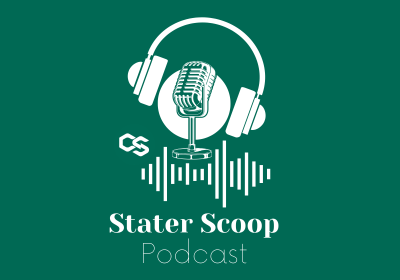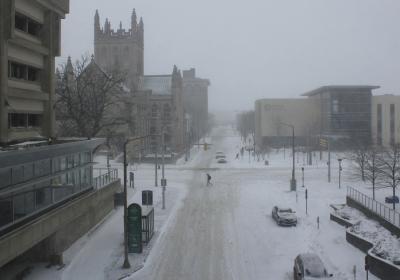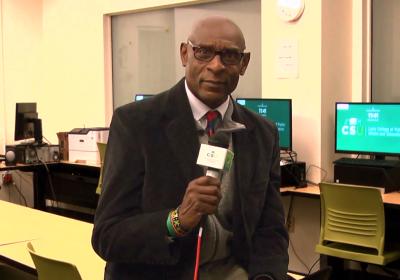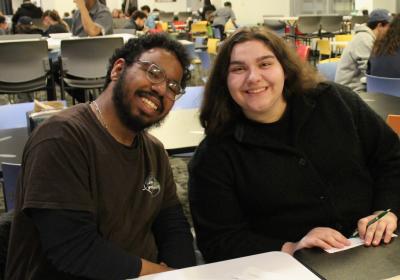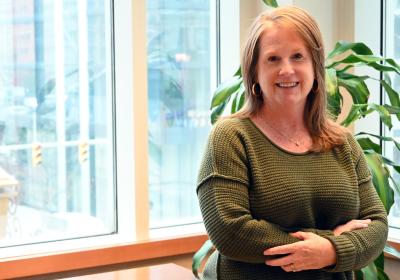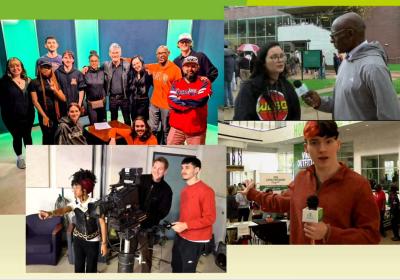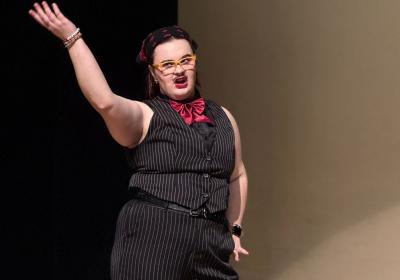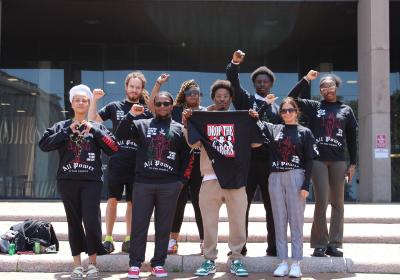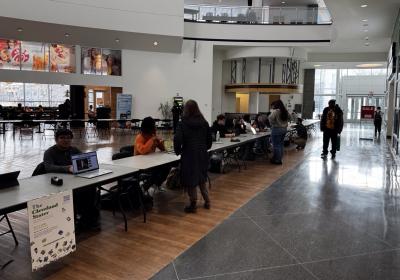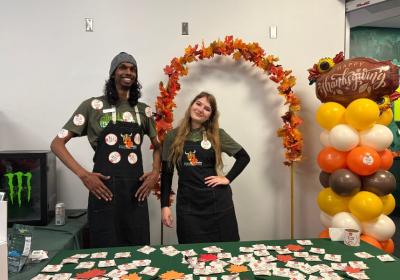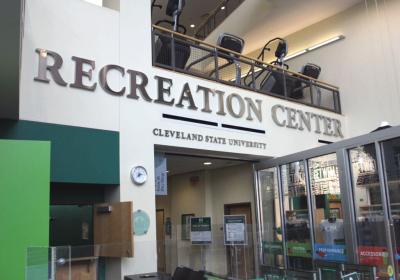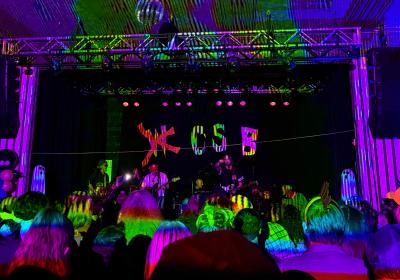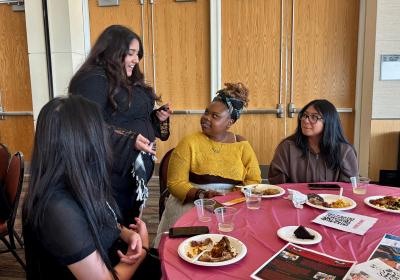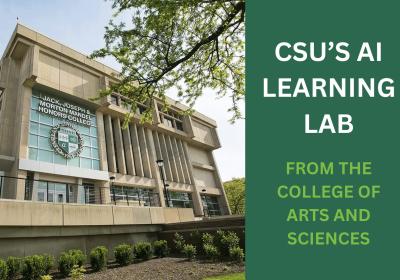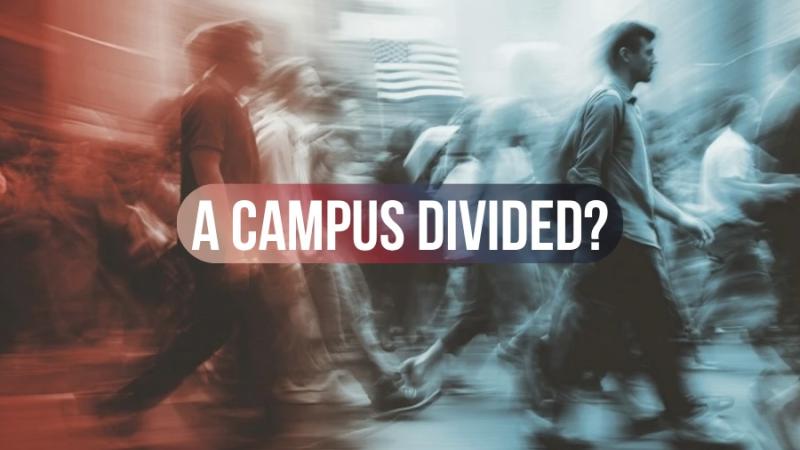
A campus divided? CSU student political leaders speak up
At Cleveland State University, political tension is becoming increasingly visible and students are feeling its impact. Whether in casual conversations or during campus events, national divisions are impacting local communities and shaping how students interact and express their views.
Leaders of two prominent political organizations at CSU outlined to The Cleveland Stater their thoughts on the political temperature on campus and how to keep it from overheating.
Tahgi Turner is president of the Collegiate Conservative Coalition, Cael Shaw is president of the Cleveland State College Democrats. Each emphasized the need for open and respectful dialogue amid rising polarization. Both said political tension is creeping into campus life, and that the opportunity for healthy conversation is fading.
Their concerns reflect a broader national trend. A 2024 study by the Institute of Politics at Harvard Kennedy School found that one-third of students feel uncomfortable sharing their political opinions on campus for fear of negative repercussions. As debates over major issues spill into classrooms, dorms and friendships, students across the country are left navigating how to speak openly and honestly in an era of deep division.
Current climate
Turner and Shaw both said that campus political tension is becoming increasingly visible, causing what should be constructive debate to turn into competitive shouting matches.
“I think that it's obvious that the tension is starting to creep up on students,” Democrat student leader Shaw said. “Students are becoming more vocal on both sides of the political spectrum, and with that, if somebody on the left gets more vocal about something, then there is going to be somebody on the right who gets just as vocal. Then it becomes a cycle of who can scream the loudest, when it should be a conversation that should be had.”
The way Gen Z consumes information may also contribute to this heightened tension. According to Conservative Coalition leader Turner this is grounds for affective polarization to build quickly among students.
“Gen Z is the most politically active community generation of all time, and the way we get our information is not necessarily the healthiest,” Turner said. “It fosters a lot of that resentment.”
In response to this political polarization, the leaders noted that students are isolating themselves from opposing viewpoints. Instead of engaging in dialogue, they seek out groups that reinforce their own beliefs, which can further entrench divisions on campus.
“There's a lot of students on campus who only want to be around people who think like them,” Shaw said. “And as a part of the increased political tension all across the country, students are putting themselves in a vacuum, or giving themselves tunnel vision when it comes to other people and their opinions.”
As division continues to creep in, the fear of losing control over the conversation becomes a concern in political dialogue held between students, shifting the priority for understanding to “winning.” Turner worries that the civil dialogue needed for understanding could begin to vanish.
“I'm worried about the dialogue dying and then one side winning out,” Turner said. “People are so afraid to talk to each other, and then when people are actually talking to each other, it's very contrived and edited.”
Personal experience
Political disagreements can quickly move from theory to practice, becoming personal for students. On campus, both Shaw and Turner feel that casual interactions are escalating into conflict, and differing perspectives are being dismissed outright.
“I think the worst that we've seen on campus is the last election cycle,” Shaw said. “We were tabling, and we had Kamala Harris and Tim Walz merchandise on our table. And some students would just approach us and either not take us seriously or crack jokes.”
No one political party is alone in the experience of difficult conversation or misaligned viewpoints. Expressing a political viewpoint can provoke mockery or discomfort – an experience known by both Shaw and Turner – revealing how sensitive campus discourse has become.
“I have had difficult disagreement conversations,” Turner said. “There are times where I've been mocked for blurting out a conservative position.”
Although not always witnessing negative political interactions himself, Shaw noted that even during seemingly calm discussions, things begin to escalate.
“I have seen a calm, casual conversation about something as recent as Charlie Kirk's assassination, turn into somebody shouting at somebody who was otherwise civil,” Shaw said.
Religious expression is another area where Turner has noticed tension on campus, in subtle but pointed ways.
“I’ve witnessed small, sort of micro-aggressive things toward the religious community,” Turner said. “I would say, whenever there's a Christian witness happening (outside), people do come and yell.”
Looking ahead
Looking to the future, the two CSU student leaders worry that continued polarization could erode connections between peers. They emphasized the importance of dialogue as a tool for collaboration and understanding.
“I think that it's a problem moving forward that Gen Z and college students as a whole are kind of burning these bridges (with each other)," Shaw said.
Turner said there is no place for political violence on a college campus, and preserving the ability to openly discuss important current events should remain a priority. He called on universities to be safe spaces for debate, where differing ideas can coexist without fear or hostility.
“If there's ever a place in the country for dialogue, it should be the public universities,” Turner said. “The school should organize real, formal debates where there are professors who moderate and students who vote or judge based on the argument that they found most compelling.”
Shaw said he believes that it is within “every single one of us” to have a casual, normal conversation with somebody we disagree with, even on a college campus. And, if that person is not reachable or you can't converse with them in a respectful way, then you have the freedom to walk away.
According to Shaw, regardless of what party or position you identify with, if at all, it’s crucial to collaborate across political lines and defend the principle of free speech, even when ideas challenge mainstream thinking.
“I think that working with people across the aisle is how you know this country actually gets things done,” Shaw said. “I think that it's a fundamental part of our republic to have a marketplace of ideas, and just because one idea goes against the mainstream way of thought at the time, doesn't necessarily mean you shut it down as free speech. You should listen to it and form your own opinion on what is said.”
Turner agreed that excluding the opposite party is never an effective strategy. Resentment, he notes, was often at the root of campus divides.
“We just have to stop resenting, I think that's what's actually causing the divide,” Turner said. “Don't make it your political mission to win a debate by ostracizing other human beings made in the image of God.”
As campus political tensions simmer, both Turner and Shaw stressed that they should not boil over. They believe that through intentional dialogue and a willingness to listen, students can bridge gaps and foster understanding – even when opinions differ sharply.
“I think that it is the responsibility of each and every single one of us as students, as young people, as Cleveland State students, to have these constructive conversations and keep it civil that way,” Shaw said.
Ultimately, both leaders see dialogue as a shared responsibility for students to maintain civility and strengthen the campus community.
For them, the next step is clear – maintaining this dialogue isn’t just about debate, it’s about the younger generations’ responsibility moving forward.
“We have a responsibility to make sure that the dialog does not die, but instead strengthens,” Turner said. “There needs to be strong left-leaning people who can really defend their position, and strong-right leaning people who can really defend their position, because without that, your freedom is taken from you.”

